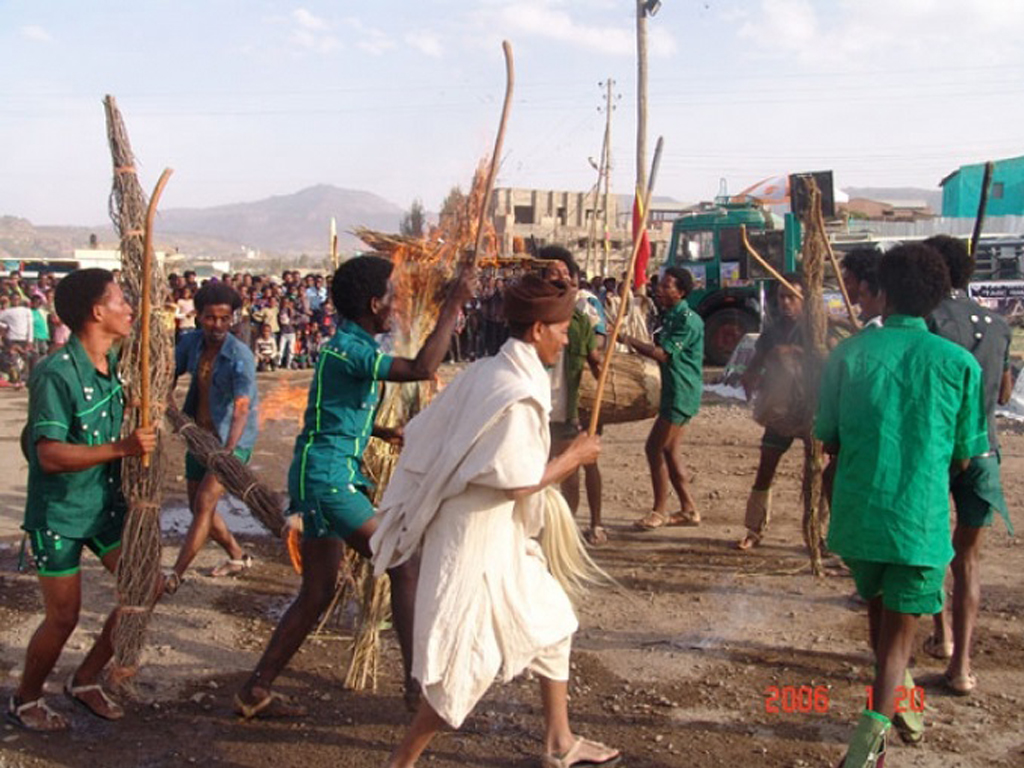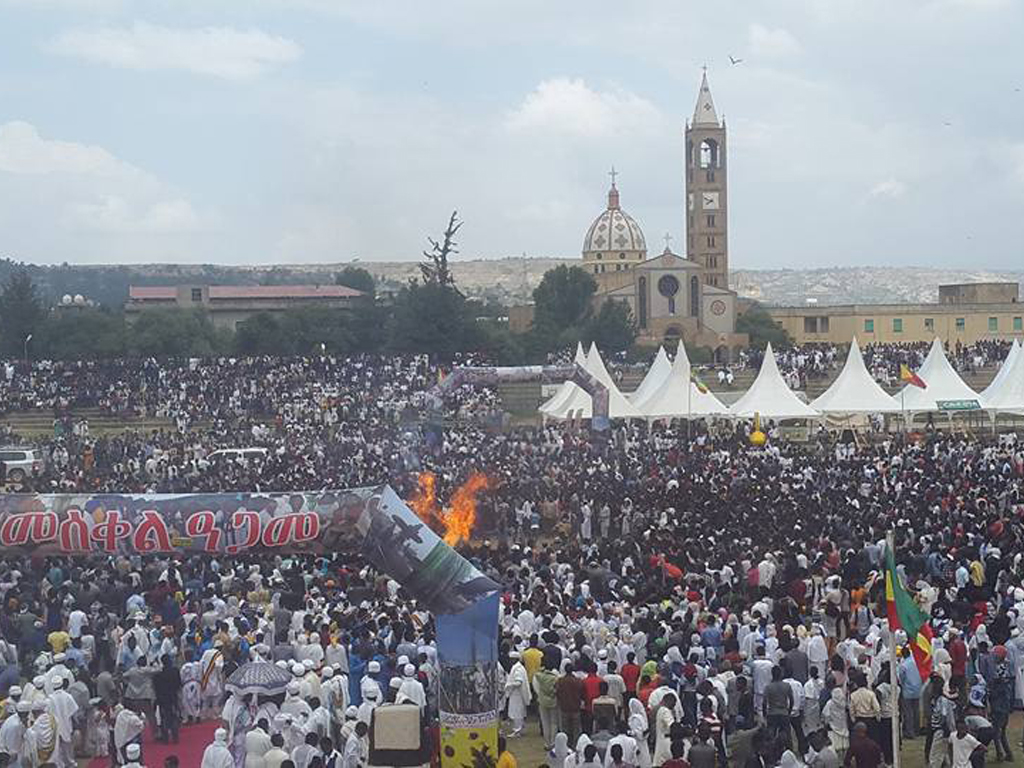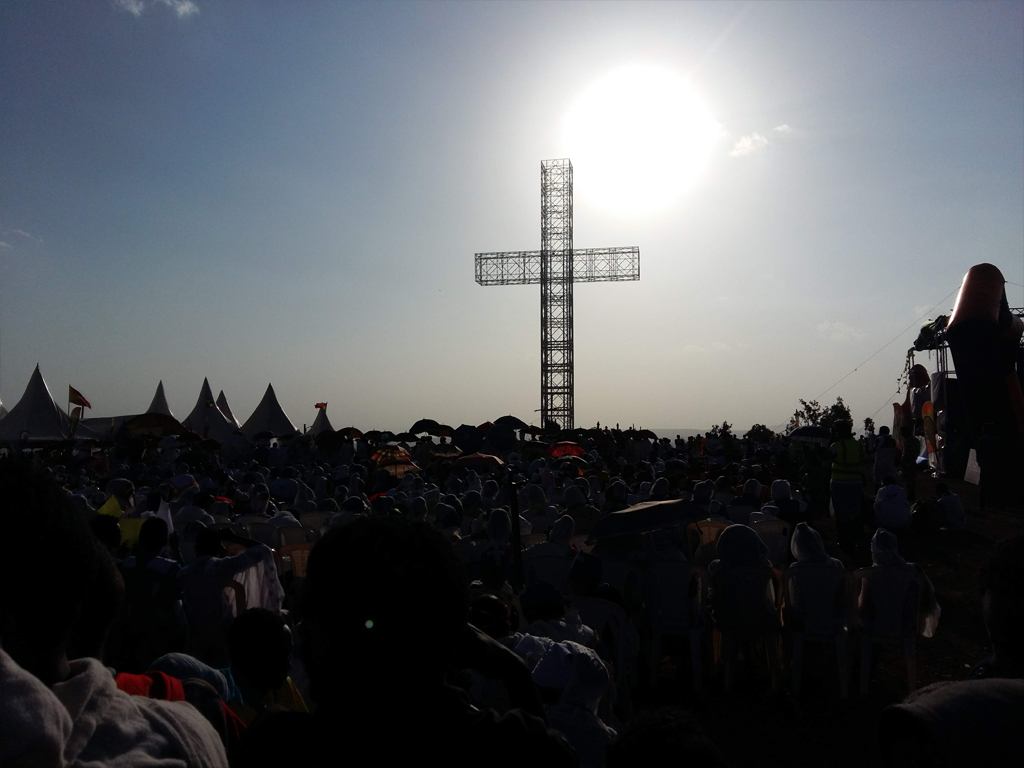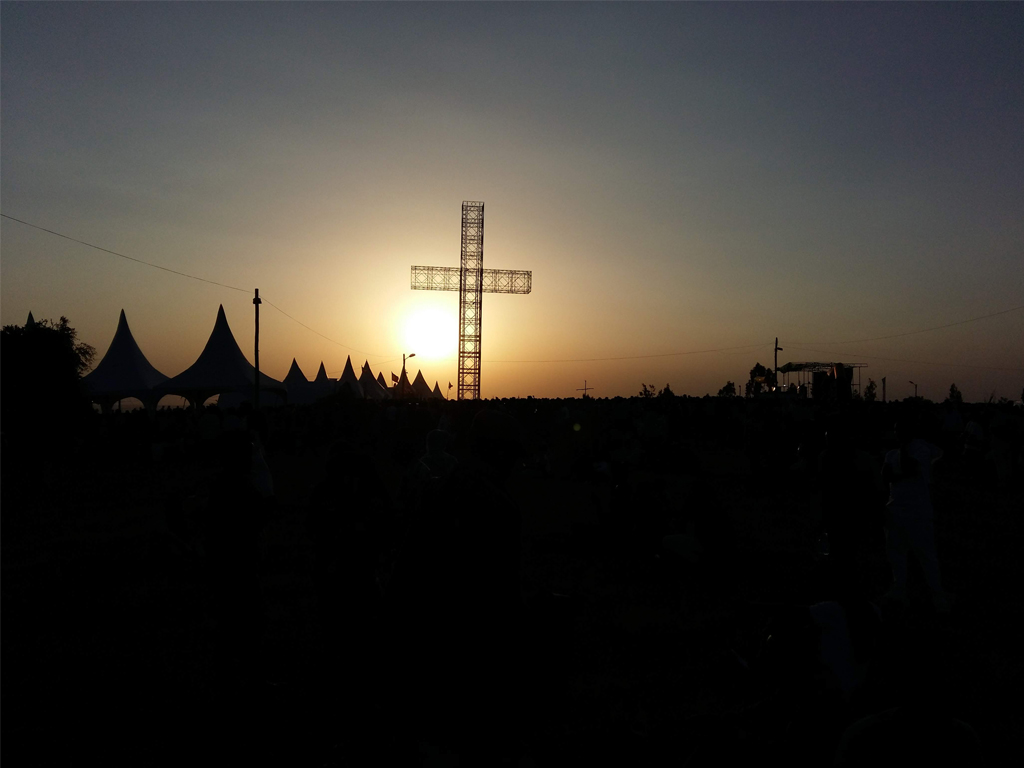Locally known as Meskel, also Mesqel (Tigrigna/Ge’ez: መስቀል), the Finding of the True Cross, is one of the most celebrated holidays in Tigrai among Christian believers. Although it is a Christian Orthodox holiday, it is a national holiday where government offices are officially closed and is celebrated throughout the country.
Meskel is celebrated by dancing, feasting, and lighting a massive bonfire known in Tigrai tradition as “Demera” in Geez. Meskel commemorates the finding of the True Cross in the fourth century when Empress Helena, mother of Constantine the Great, discovered the True Cross on which Christ was crucified. The feast is celebrated in Tigrai on September 17 Ge’ez Calendar (September 27 Gregorian calendar), 6 months after the discovery of the True Cross.
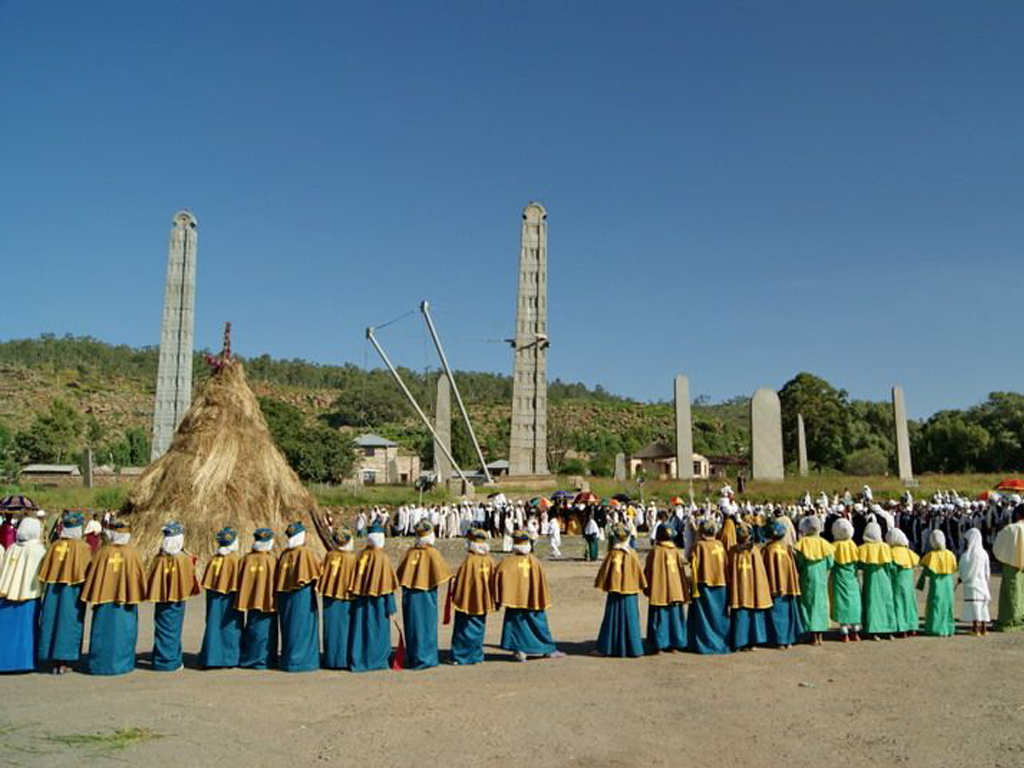
Meskel celebration in Axum
According to tradition, Empress Helena lit incense and prayed for assistance to guide her. The smoke drifted towards the direction of the buried cross. She dug and found three crosses; one of them was the True Cross used to crucify Jesus Christ. Empress Helena then gave a piece of the True Cross to all churches, including the Axumite (Tigrai) Church. This piece was then brought to Axum. According to the Axumite legend, when people get close to the piece of the True Cross it made them naked by its powerful light. Because of this, a decision was made to bury it in a safe place.
- Meskel celebration in Adigrat
- Meskel celebration in Adigrat
There are two occasions on Meskel. The first is Demera (Ge’ez: ደመራ) on September 26, in which bonfires are built topped by a cross to which flowers are tied. The flowers are Meskel Daisies. The Patriarch of the Orthodox Church orchestrates the lightning ceremony. After the bonfires are blessed they are lit and dancing and singing begin around them. Priests in full ceremonial dress sing around the bonfire. While the Demera is set on fire there is an inner feeling of brightness for all those who are around it. Little Demera is also had built-in individual houses or villages. After some time, splinters from the bundles of burning wood collapse. Which direction they fall is very significant: north, south, east, or west interpretations are soon conjectured as to whether the fields of grain are going to be plentiful or not, or there is peace all year round, etc. At the closing of the Demera, a rain shower is expected to fall to help put the fire out. If the rain falls and the fire is extinguished, there is a belief that the year will be prosperous.
- Meskel celebration in Mekelle
- Meskel celebration in Mekelle
The day after the Demera is Meskel. This day is observed with plenty of food and drink as believers go to the spot of the Demera and, using ashes from the fire, mark their foreheads with the sign of the cross. The festival coincides with the mass blooming of the golden yellow Meskel daisies. The best place to see the original Meskel Festival in Axum, Adigrat, and Mekelle. It is celebrated throughout Tigrai at church and household level, in Lalibela, other Agew lands, and parts of Eritrea.
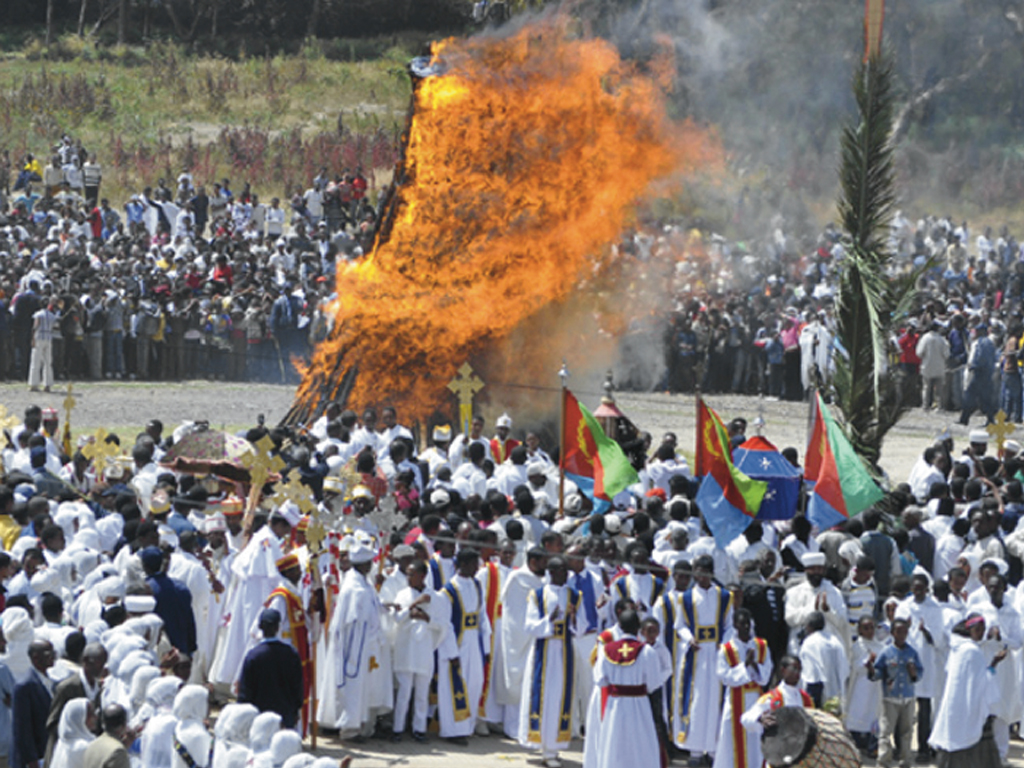
Meskel in Eritrea
This is as colorful as Timket, however, instead of water the focus of the celebration is a bonfire before topped with an image of a cross to which flowers are tied. On the day of the festival, as it coincides with the mass blooming of the bright yellow Maskal daisies, called Gelgele Meskel, are tied to fronds, and piled high in town squares and rural gathering areas. Colorful processions carrying bumming torches converge on to the square, where a pyre is lit and the celebrations continue until dawn, symbolically heralding the advent of a new year after the rainy season is Over.
Early in the morning bundles of tied-up twigs and sticks, known as Shig, are lit up. Once the bundles catch the fire, they’re quickly taken outside, to the front yard. In rural areas, young Christian boys chant touring around the nearest church three times. There a small fireplace is made up from them and the dances and singing begin. The family dances in a circle around the fire and sings happy songs whilst wishing each other well for the New Year. At the end, when the fire dies a little, everyone jumps three times over the pit, to leave the old year behind and welcome the New Year. This is known as AkoAkokay.
For celebrating Meskel in its origin among Tigrians, you’ve choices of beautiful scenic celebrations at Axum, Choma’a (Mekelle), Adigrat, and other places.

